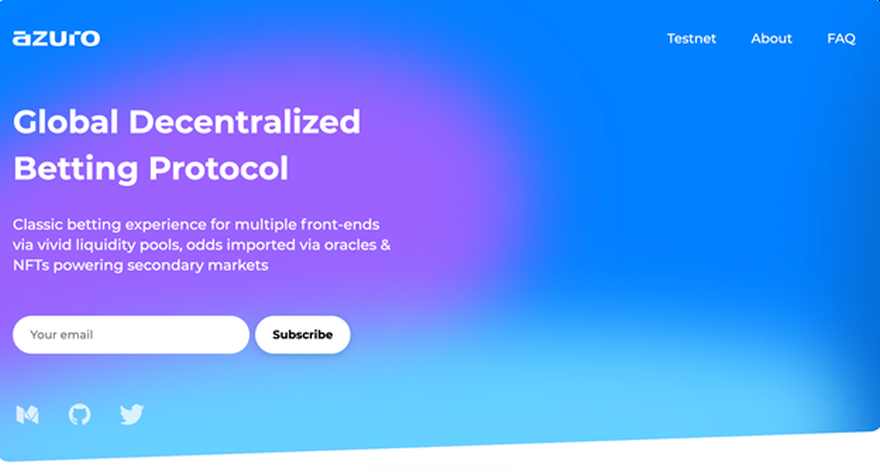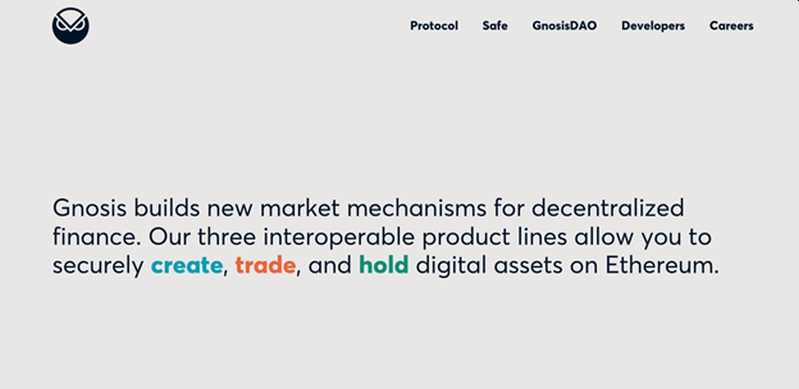How Blockchain is Disrupting the Future of Betting, from Stable Odds to No-Conflict Payouts

You will likely have heard of blockchain-based protocols and products like NFT’s, DeFi, and Cryptos, but have you heard that the blockchain also plays host to a new gaming arena, one which is enticing hundreds of thousands of new players each month? If not, it’s time to pay attention to blockchain-based gaming.
There are some very good reasons why this new method of gaming and betting is attracting so many players from the more traditional gaming types. Here’s the most pertinent:
Security
When gaming is based on the blockchain, you never need to give your private information or your banking or credit card details. Instead, you will use your crypto wallet and give your wallet address for every deposit and withdrawal. Unlike with traditional casinos, your user details are not stored on one single server, which gives cybercriminals a single entryway to access data. With the blockchain, data is stored across thousands of servers worldwide, making it nigh on impossible to access data, and certainly not worth the hassle involved.
Decentralization
This is one of the core principles at the heart of the blockchain. Decentralization pits the players directly against one another and removes the middle man. In the case of an online casino, the casino itself cannot tamper with or interfere with data, odds, or bet settlements, as all activity is automatically authenticated, and verified on the blockchain. The use of smart contracts for blockchain gaming means activity is tamper-proof and unimpeachable.
Provably fair
When betting is conducted over the blockchain, there is no way to make it unfair, as the blockchain and the smart contracts deployed retain full control overactivity. As is often the case with traditional gaming sites, especially successful bettors, can have their accounts limited or blocked. Using the blockchain, it is impossible to do this and it means that all players are on the same playing field.
Onboarding
The onboarding of new players is smooth and seamless. With traditional play, the KYC (know your customer) and AML (anti-money laundering) processes serve as an impediment to onboarding, with a high percentage of users unwilling or not able to complete the onboarding process. With blockchain gaming sites, there is no KYC. If you have the coins in your wallet, you can use them, cutting out the costly onboarding process for the gaming sites too.
Play to Earn
A particularly exciting new development of blockchain gaming is a new model called Play to Earn. It takes the focus off of the user having to win games to earn, and rather reward them for their engagement levels, win or lose.
With the above benefits, the entire ecosystem of betting reaches a point of stabilization, transparency, and fairness.
Blockchain Companies Leading The Way in The Betting Industry
Azuro Protocol

Azuro is a decentralized betting protocol governed by a DAO. According to Azuro, “we can easily negate all of the challenges and frustrations that come with conventional gaming and betting. With a protocol like ours entry barriers are lowered for investors or entrepreneurs that want to run their own labels, and they do not need to worry about jurisdictional or regulatory limitations. It’s a win-win for all parties.”
That’s because Azuro is developing its own proprietary technology, like having their odds imported via oracles, which all underpin their front ends to offer a much more rewarding and fair experience for gamers, and a smooth and faultless system for bookmakers. They use DAO’s for a smoother and more provably fair experience for the players, where decisions and transactional activity are all automated through the Decentralized Autonomous Organization, removing the opportunity for odds, or bet settlement manipulation.
Azuro promises bookmakers more liquidity, which is brought about through liquidity pools, through the integration to the front end of over 20 other bookmakers. For the player, this means fair odds no matter how low the liquidity is as a result of the algorithms that can adjust the odds to make them fair.
Augur

Augur is a well-known decentralized prediction market platform built on the Ethereum blockchain, which enables universal and transparent access to its markets, through its peer-to-peer framework. Augur enables users to bet on a huge variety of events across sports, finance (including crypto markets), and world events. Augur proves to be a simple way for investors to engage with buying and selling of shares, and liquidity providers can hold their funds in the platform in return for risk-free passive income.
According to the former CTO of Coinbase, “Blockchain-based prediction markets may be the one force strong enough to counterbalance the spread of incorrect information on social media. They give people a financial incentive to seek the truth and then protect them with the twin shields of pseudonymity and decentralization.”
Augur promises the best odds and the lowest fees, with players able to “keep more of their winnings than any other exchange through low fees and the best odds. Augur doesn’t take a cut.”
Gnosis

Gnosis focuses more on DeFI and builds new mechanisms for decentralized finance. The protocol is huge with a total of over $12 million locked in and a market cap of nearly $4 billion. The protocol gives users the ability to trade, and hold cryptos on the Ethereum ecosystem, and for developers to use their portal to build their own DEX’s and apps.
Gnosis also uses a DAO, in the same way as Azuro, with participants invited to take part in the DAO, thereby allowing users of the Gnosis products to guide decisions on development, support, and governance of its token ecosystem, in a way that is transparent and open.
Looking Ahead
Following in the footsteps of decentralized finance, there is a huge demand for both crypto and blockchain-based betting globally. This type of gaming removes borders between jurisdictions and makes the process of betting smoother and more secure. Sports betting sites could greatly benefit from the blockchain in the same way as finance has done, giving bettors a faster and more secure way to place bets, receive payouts, and provably fair fixed betting odds. For gaming sites to circumnavigate heavy credit card payments and cumbersome KYC procedures would certainly encourage an increasing number to join the blockchain betting revolution.

